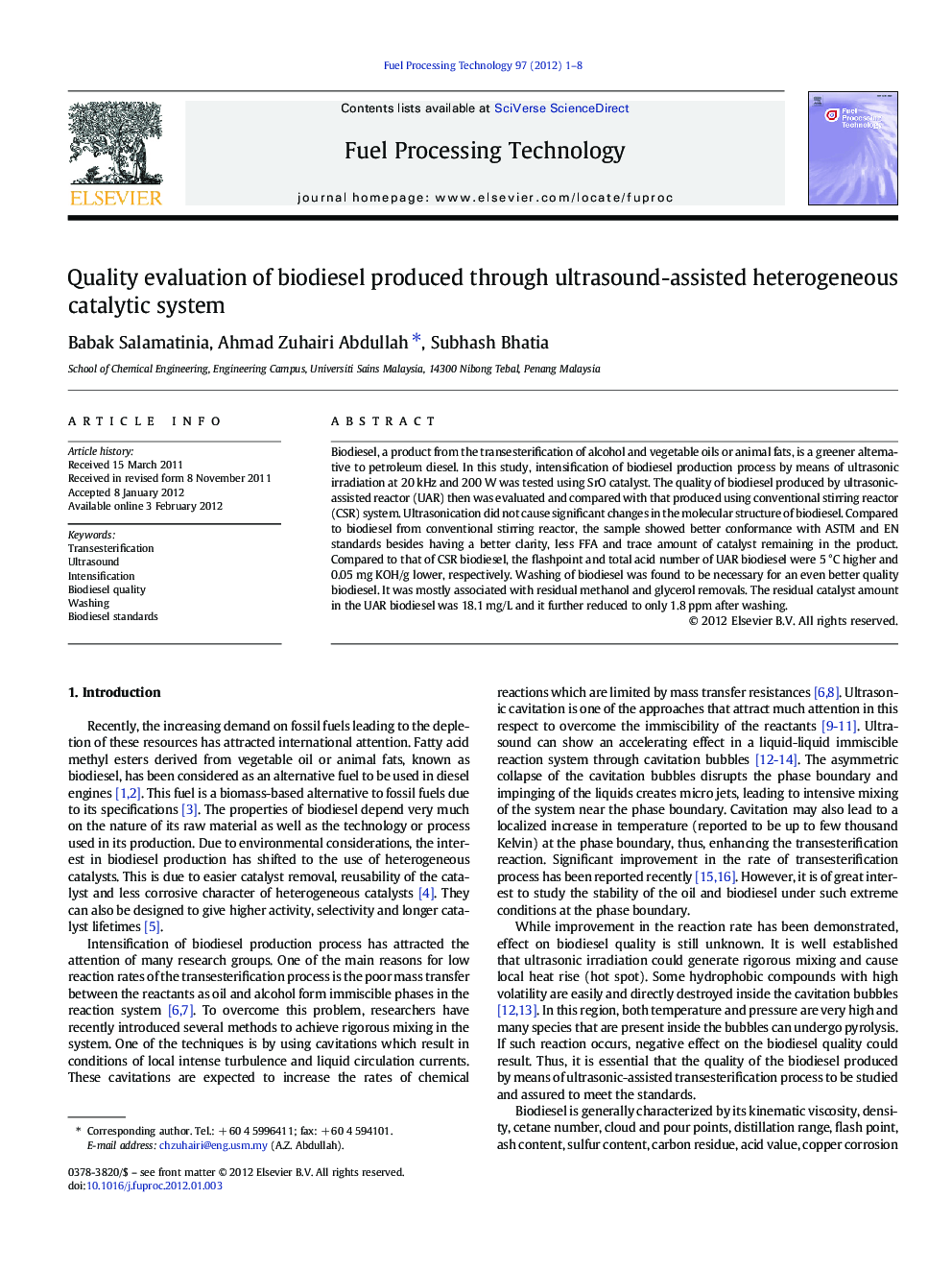| Article ID | Journal | Published Year | Pages | File Type |
|---|---|---|---|---|
| 210449 | Fuel Processing Technology | 2012 | 8 Pages |
Biodiesel, a product from the transesterification of alcohol and vegetable oils or animal fats, is a greener alternative to petroleum diesel. In this study, intensification of biodiesel production process by means of ultrasonic irradiation at 20 kHz and 200 W was tested using SrO catalyst. The quality of biodiesel produced by ultrasonic-assisted reactor (UAR) then was evaluated and compared with that produced using conventional stirring reactor (CSR) system. Ultrasonication did not cause significant changes in the molecular structure of biodiesel. Compared to biodiesel from conventional stirring reactor, the sample showed better conformance with ASTM and EN standards besides having a better clarity, less FFA and trace amount of catalyst remaining in the product. Compared to that of CSR biodiesel, the flashpoint and total acid number of UAR biodiesel were 5 °C higher and 0.05 mg KOH/g lower, respectively. Washing of biodiesel was found to be necessary for an even better quality biodiesel. It was mostly associated with residual methanol and glycerol removals. The residual catalyst amount in the UAR biodiesel was 18.1 mg/L and it further reduced to only 1.8 ppm after washing.
Graphical abstractFigure optionsDownload full-size imageDownload as PowerPoint slideHighlights► Ultrasonic intensification of biodiesel production. ► 20 kHz and 200 W using SrO catalyst. ► No significant chemical changes biodiesel. ► Better conformance with ASTM and EN standards. ► Washing improved biodiesel quality.
